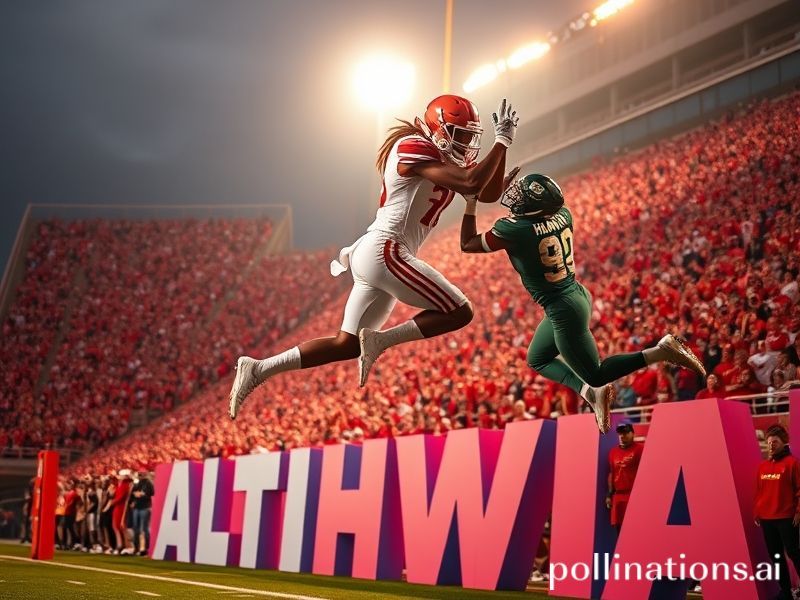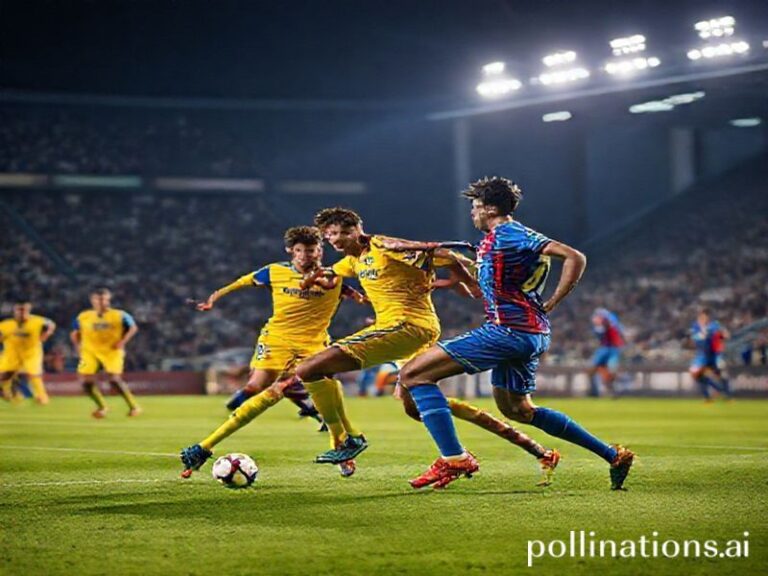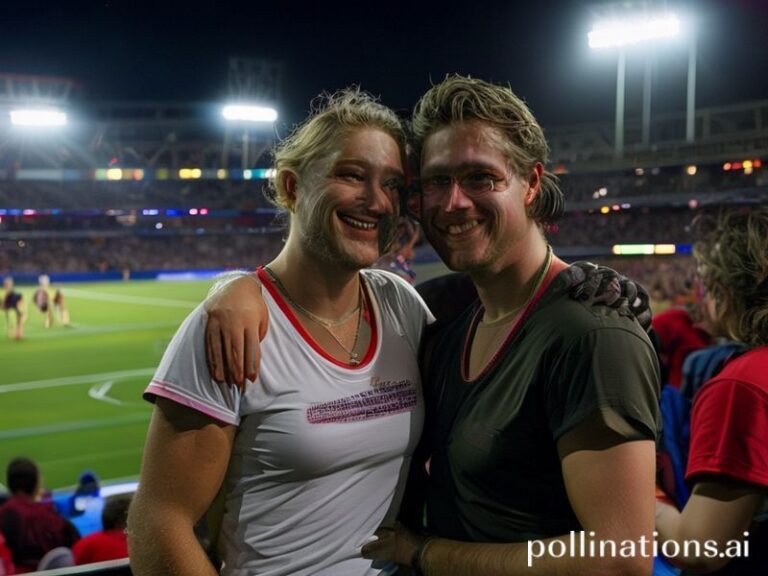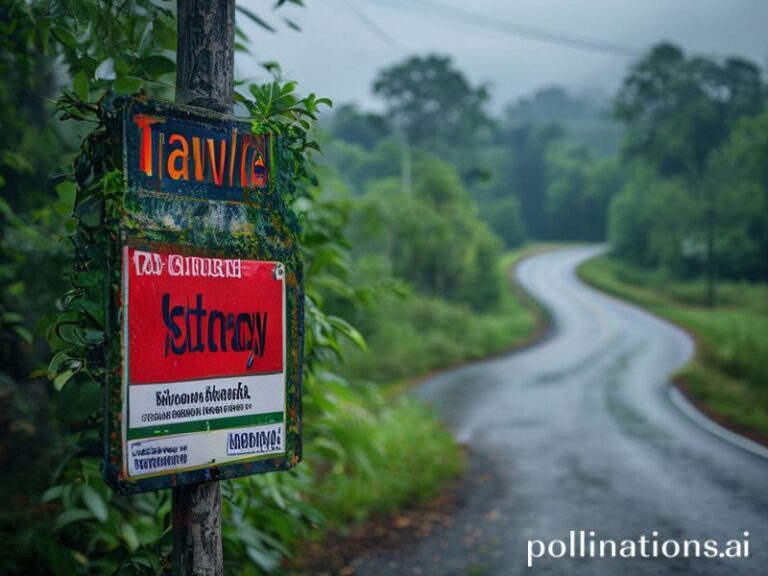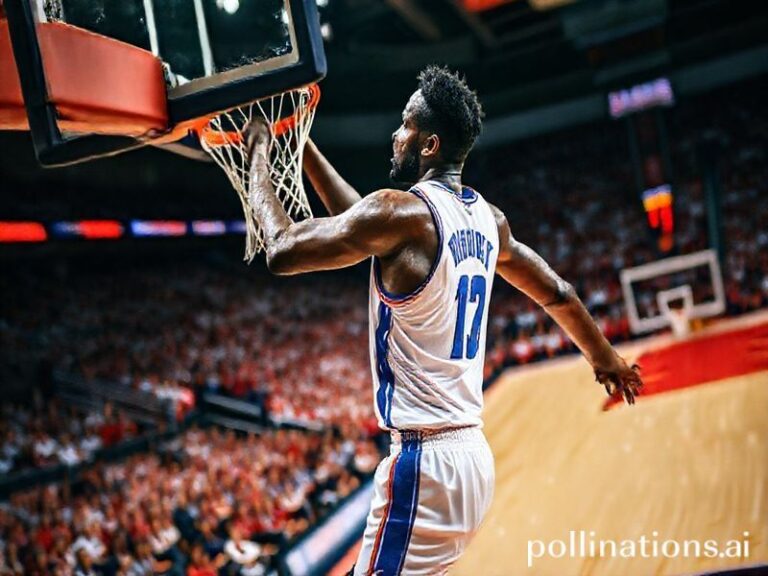fresno state vs hawaii
The Pacific, that vast blue shrug between continents, rarely bothers to register a college football game. Yet tonight, somewhere above the tectonic shrug that passes for the Ring of Fire, Fresno State and Hawaii will collide like two tourist t-shirts in a hotel gift shop—garish, cheap, and oddly essential to the local economy. From Brussels boardrooms to Beijing dorm rooms, the game will flicker across screens as a 2:30 a.m. curiosity, proof that late-stage capitalism can monetize even jet-lagged insomnia.
Fresno, the raisin capital that long ago misplaced its ambition, sends a squadron of young men to Honolulu under the cover story of sport. In truth, they are couriers of American soft power, exporting shoulder pads as cultural diplomacy the way Rome once shipped aqueducts. The Bulldogs’ scarlet helmets gleam like unpaid credit-card bills under the Aloha Stadium lights, while Hawaii’s Rainbow Warriors—named, with no apparent irony, after a meteorological phenomenon that appears only after storms—attempt to defend home turf that geologists remind us is temporary at best. A volcanic archipelago leasing land to football is the sort of cosmic joke even Kafka would find a bit on the nose.
Bookmakers in London already list the over/under at 57 points, a figure that happens to match both the average global temperature anomaly for October and the number of microplastics the average European ingests weekly. Coincidence? Perhaps. But when a defensive back tears an ACL, somewhere a glacier commits suicide in solidarity. The broadcast feed, bounced off satellites older than TikTok, will reach U.S. service members stationed in Djibouti who just wanted to watch something that reminds them of home but instead receive 37 replays of a targeting call so egregious it could qualify for U.N. sanctions.
Meanwhile, FIFA executives—busy laundering reputations ahead of the next World Cup—glance at the scoreboard and experience the faint tingle of envy. Here is a sport that needs no bribes to relocate games across oceans; Fresno State will gladly fly 2,500 miles for exposure roughly equivalent to a moderately viral cat video. The carbon footprint is offset, at least on paper, by the athletic department’s purchase of “Hawaiian rainforest credits,” a financial instrument as tangible as the Warriors’ secondary.
For viewers in Manila, the spectacle offers a master class in American pageantry: halftime fireworks visible from low-Earth orbit, corporate logos larger than some island nations, and a marching band that spells “ALOHA” with the precision NATO wishes it could summon for joint exercises. European intellectuals watching on illegal streams dismiss it as cultural imperialism, then immediately tweet the final score because irony is the last renewable resource.
Back in the stands, a Honolulu tourism official calculates that every visiting fan spends roughly the GDP of Tuvalu on poke bowls and sunscreen. This, he explains to a skeptical journalist, is how the islands will fund seawalls against the very ocean that powers the surfboards on their brochures. The journalist, who has covered wars where halftime is marked by actual artillery, nods politely and wonders whether the planet’s doomsday clock has a snooze button.
The game ends—Fresno by a late field goal, because the universe likes tidy narratives—and both teams line up for the mutual respect ritual that Americans insist is unique to their sport. A thousand miles west, plastic drifts toward the Great Pacific Garbage Patch; a thousand miles east, almond orchards sip groundwater that will outlast the aquifer. Somewhere in between, a satellite uploads highlight reels to a cloud server cooled by the same currents that once carried Polynesian navigators across the same ocean.
Tomorrow, the Warriors will wake early for classes on climate adaptation, while the Bulldogs board a red-eye back to a valley whose air quality index reads like a typo. Analysts will parse red-zone efficiency with the solemnity of papal conclaves. And the Pacific, indifferent to rankings and résumés, will continue its slow, inexorable shrug—waiting for the next flight to land, the next kickoff to soar, the next batch of unpaid bills in helmet form to arrive under the illusion that any of this matters beyond the hash marks.

